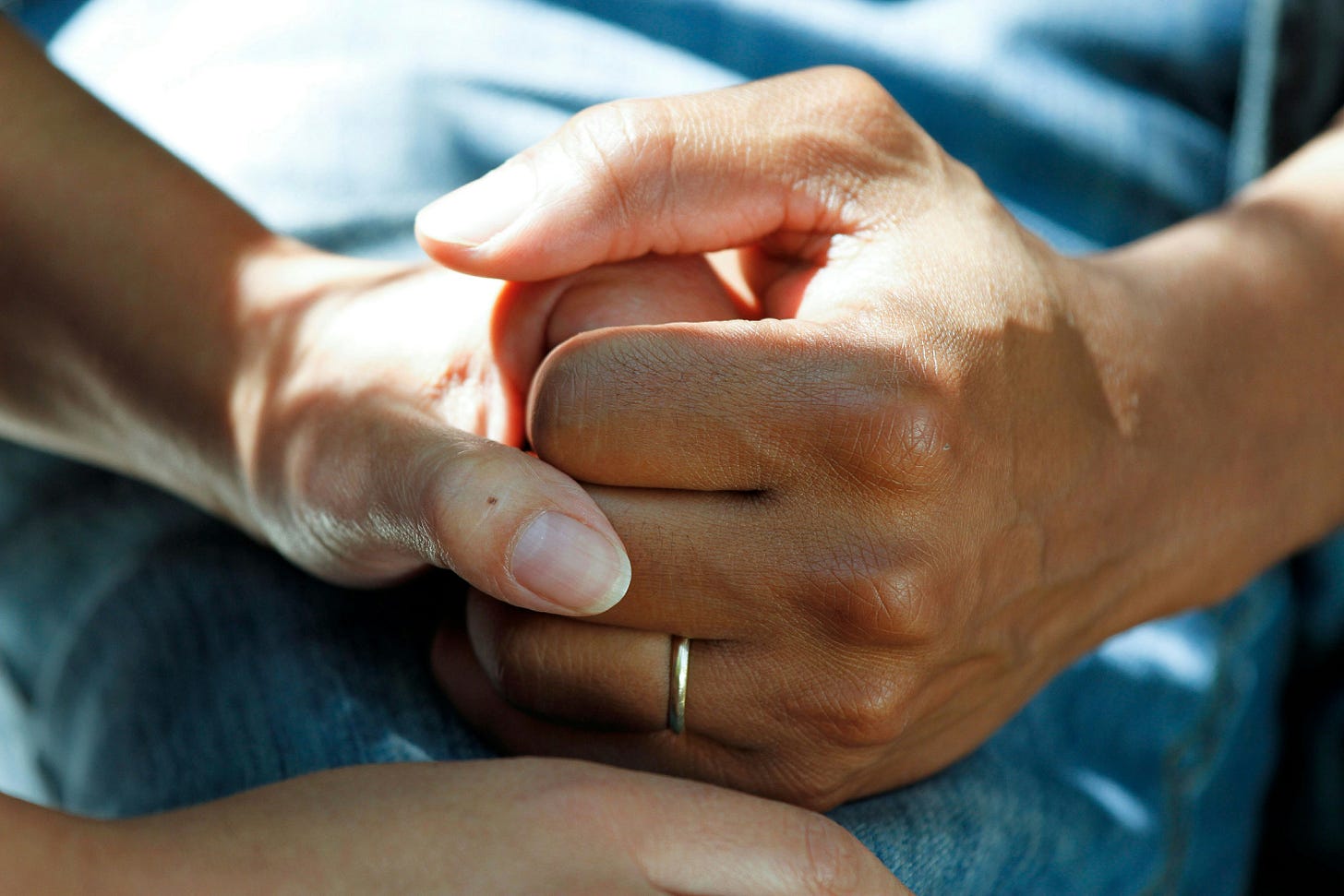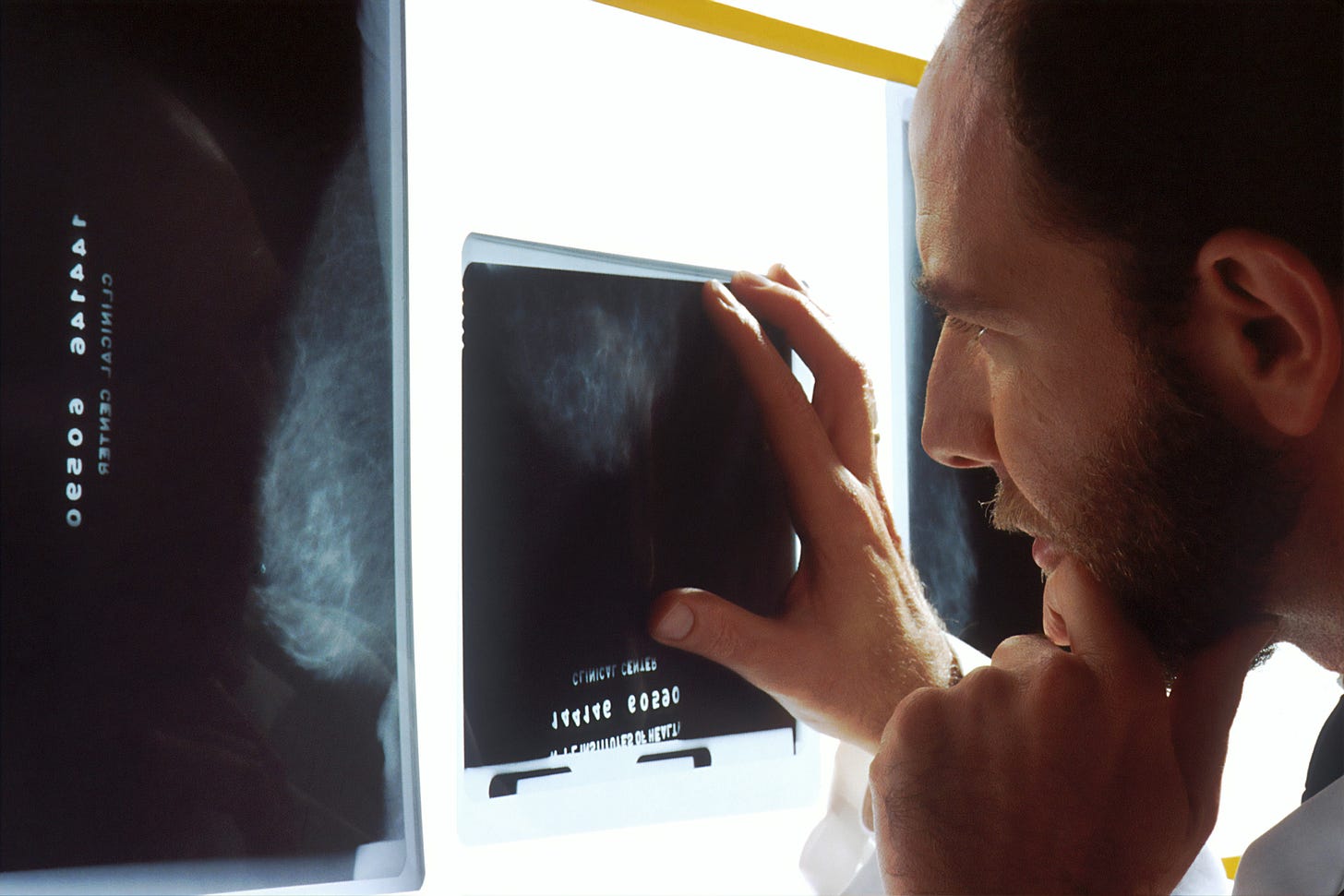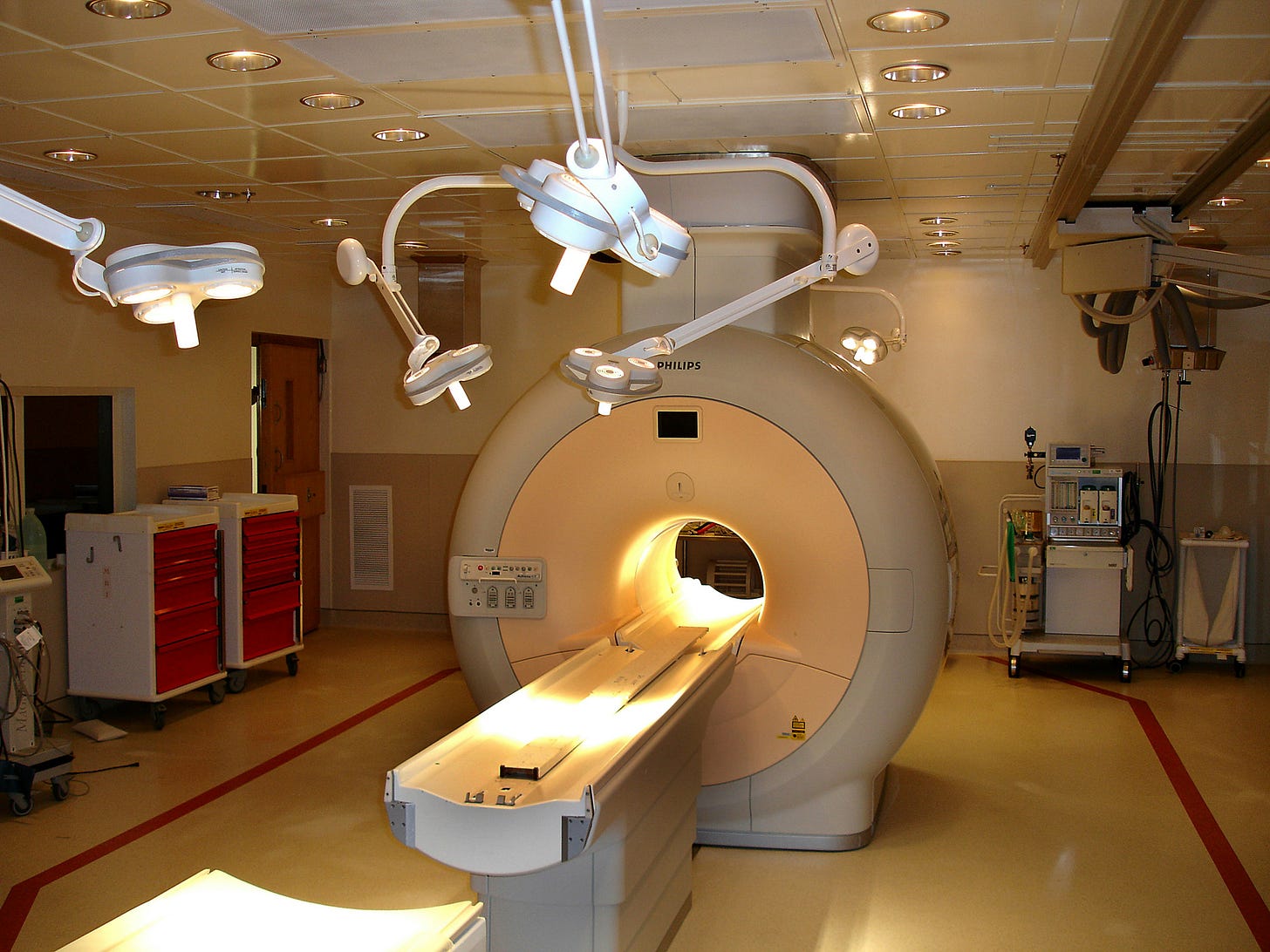Beating the Odds
In November 2003, my father was diagnosed with esophageal cancer. When it was revealed that it was stage four, that was a virtual death sentence...

In November 2003, my father was diagnosed with esophageal cancer. When it was revealed that it was stage four, that was a virtual death sentence, especially over twenty years ago when the treatments weren’t as advanced as they are presently. Also, given the location of the esophagus near vital organs, it can spread quickly.
The cancer crept into his body seemingly out of the blue. For a few weeks he had worse indigestion than usual. My father was known for massive burps that could shatter an eardrum, and for living on antacids in his younger years, but little did he know all that reflux was slowly, but stealthily, eroding his insides.
He thought he had some kind of stomach bug, and I know the thought of cancer never even penetrated his mind. One day he couldn’t eat anymore, and the food just got stuck. He went to his primary care physician who ordered various blood tests to decipher what was going on. His red blood cell count was abnormally low. While many doctors would’ve dismissed that as potential anemia or some other similar malady, Dad’s doctor was compelled to investigate further.
He referred him to a gastroenterologist for an endoscopy and colonoscopy to make sure there was no internal bleeding, and that’s when the disease was unearthed. The endoscopy revealed his esophagus was destroyed by cancer. It was discolored, diseased and ripped to shreds by the invading tumor.
The gastroenterologist sent Dad to different surgeons to attempt to cut out the monster raging through his body. The surgeons acknowledged the cancer had spread and surgery wouldn’t get all of it. Also, it was noted that this was a highly invasive procedure. Dad wouldn’t be able to eat properly anymore because in essence, most of his esophagus would be cut out. He would also have to sleep sitting up for the rest of his life and eat very small portions which never would’ve sat well with him.
Family members also did their own research, hunting for doctors who could potentially help as time was clearly not on our side. I recall for a couple of weeks my family would pile into the minivan, traveling from doctor to doctor, taking heed of their dire prognoses as the grim realization pummeled our brains that the chances of my father rebounding from this demon that invaded his body were slim to none. Then my aunt got a referral to a highly recommended oncologist that a friend of hers knew about, and the ominous clouds that appeared to be trailing us began to part, just a little.
I recollect on the day of the appointment the whole family gathered in the office, waiting for the doctor’s arrival and wondering if he, too, would bestow my father’s death sentence upon us. When he appeared, I was expecting to see an older physician with years of unbounded experience that could save my father’s life, but instead, a young doctor entered the room with a fresh face and upbeat outlook that was sorely lacking from the other specialists we encountered. He painstakingly scrutinized my dad’s records and images, then when he was finished, he looked at us and said, “Joe, I think I can help you.”
I didn’t know if he truly cared about trying to help my father because it was the human thing to do, or if he was just a young doctor willing to pull out all the stops to try to make a name for himself and advance upward in the world of cancer treatment, but I didn’t care. I just wanted someone to try to save my father. He was only fifty-six years old and had so much life left in him. He couldn’t die.

I pulled my dad aside and pleaded with him to give the minivan a rest from driving from physician to physician and just trust that this doctor could help him. I told him that I got a good feeling in my bones that this is the doctor for us. My dad complied, and his difficult journey began.
The oncologist slammed my dad with the dosage of chemotherapy that would usually be given to a healthy twenty-something male, but he took it all courageously, even though he was terrified. Luckily my father took care of himself. He didn’t drink or smoke. He was a vegetarian and went to the gym almost every day. If it wasn’t for that, I truly don’t believe he would’ve made it out of this nightmare alive because his body wouldn’t have been able to withstand the treatment protocol.
Through all the sickness, extreme weight loss, exhaustion, vomiting, endless tests, radiation and chemotherapy, and amidst all the fear, anxiety and sadness, my father never complained once. He never lost his temper with anyone, which would’ve been understandable given the circumstances, and he remained composed and collected. He took it on the chin as best he could. I don’t know where I heard it, but I told him about a quote I recalled that sickness is God’s way of looking for attention. He took that to heart, and his faith grew.
Whereas chemotherapy usually renders someone down for the count, my father was still going to the racetrack and to work as a bartender even as the poison was being furiously pumped into the port in his chest. I recall telling him to slow down, and to rest, but he said, “Cancer isn’t going to get me,” and he continued to go about his daily routines even though that was undoubtedly taking every ounce of strength that he could muster.
I was so amazed by my father and honored to be his daughter. Ever since I was a little girl, he was my hero, but now he was taking on superhuman qualities in the face of his potential demise. His resolve astounded me, and his tenacity to beat a stage four cancer virtual death sentence was beyond belief.
Throughout my life he would impart maxims to me such as, “count your blessings, not your problems,” “keep the faith,” “sometimes you have to take life on the chin,” “there’s a solution to every problem,” and so many countless others. Now, I was seeing him live those words, and I couldn’t have been prouder.

Periodic testing throughout the treatment indicated that it was working, and the cancer was responding. Then finally, the day came when I could finally breathe again, when the doctor revealed that dad was in remission. The oncologist was even amazed at how well my dad responded to the treatment. He was expecting to win him a few more years of life, but he ended up giving him an extra twenty.
Dad would tell me stories about when he would go to follow-up appointments for checkups which spanned the rest of his life. In so many words, the doctor would allude to the fact that he couldn’t believe my dad was still on this planet twenty years later after the severity of his original diagnosis, alive and full of life. Because of the bond that was forged over the years between them, when my father passed, the doctor called my family to express his sadness. I wouldn’t doubt my father was one of his most memorable patients.
That day we found out dad was in remission was November 12th, 2004. Every year, we would go to dinner to honor that day and never forget how blessed he was. This year, he wasn’t here to commemorate the day we were told he would live. Despite my heart being heavy, I treated myself to lunch and had a glass of wine in his honor. Even though I’m not the most religious person, I went to church to celebrate him in his favorite place to be.
Any amount of time with my father wouldn’t have been enough, however I’m grateful for the extra two decades I did get. Dad was at my wedding, walked me down the aisle, and we shared a beautiful dance to, “I Loved Her First.” He was able to meet his grandson and spend almost four precious years with him that he will never forget. We had many birthdays, holidays and family celebrations, and we were able to embark on many more of our famous day trips that we both loved.
I’ll cherish those memories for as long as I breathe. Even though my father isn’t with me any longer physically, I feel his presence, and know that for as long as I live, he won’t be far away. He’s never far from my mind, and lives in my heart. There, he will always be.



